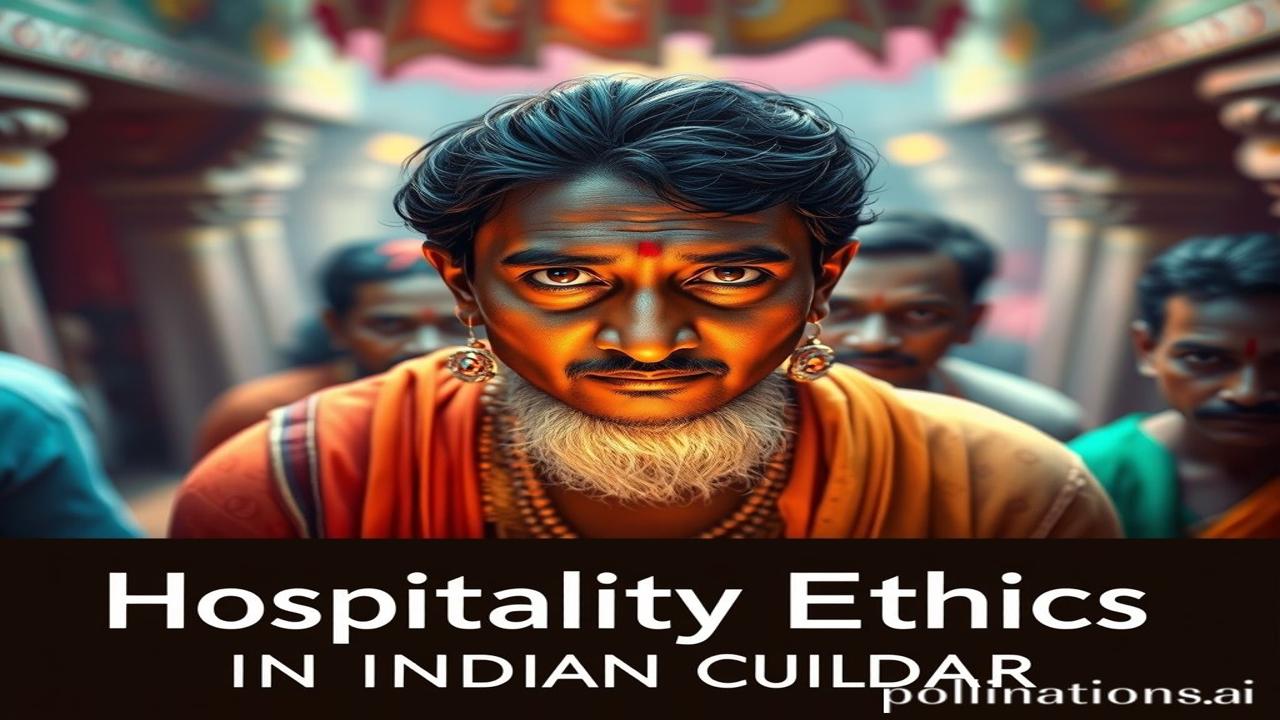Atithi Devo Bhava: The Soul of Indian Hospitality
Kabhi socha hai, kisi ajnabi ke ghar aane par jo dil se swagat hota hai, woh kahan se aata hai? Woh sirf ek rasam nahi hai; yeh toh hamari sanskriti ki neev hai. Waqt ki dhool mein chhupi, yeh atithi devo bhava ki kahani hai, jismein har mehman mein hum bhagwan ka roop dekhte hain. It’s more than just saying “welcome”; it’s about a way of life.
Itihasic Prasthbhoomi: A Journey Through Time
Atithi Devo Bhava – the guest is equivalent to God. This isn’t just a saying; it’s a philosophy deeply ingrained in Indian culture for thousands of years. Its origins can be traced back to the ancient Vedic texts, specifically the Taittiriya Upanishad. These scriptures emphasized the importance of treating guests with utmost respect and generosity.
Dating back millennia, hospitality wasn’t just a social nicety; it was a dharma – a sacred duty. Imagine life in ancient India. Travel was arduous, and staying alive could be a challenge. Providing food, shelter, and safety to travelers was seen as an act of immense merit, a way to earn punya (good karma). Kings and commoners alike competed to offer the best hospitality, believing it would bring blessings and prosperity to their homes and kingdoms.
Zameeni Sach – Log aur Jeevan: The Human Tapestry
Let’s paint a picture. Picture a weary traveler, his clothes dusty from the long journey, arriving at a small village. Maybe it’s a wandering sadhu seeking alms, or a merchant traveling with his goods. The villagers, irrespective of their own poverty, would rush to offer him water, food, and a place to rest.
“Aiye maharaj, padhariye!” they would exclaim, their faces beaming with genuine warmth. The women would offer freshly cooked roti and dal, the men would offer a charpoy to rest on, and the children would gather around, curious about the stories the traveler carried.
Ma Rukmini, the village head’s wife, always kept extra food prepared, just in case someone arrived unexpectedly. “Bhagwan kisi bhi roop mein aa sakte hain,” she would say, firmly believing that every guest was a divine messenger. Even during periods of scarcity, sharing whatever little they had was considered the most sacred duty. Rulers like Chandragupta Maurya had elaborate guest houses built along trade routes, ensuring the safety and comfort of travelers.
Dharohar aur Pehchan: Cultural Significance Today
Even today, atithi devo bhava resonates deeply in Indian society. Whether it’s a grand wedding feast or a simple tea offering, hospitality is always at the forefront. Think about it: when a relative visits your home, the first question is always, “Kya loge? Chai, pani?” It’s instinctive, almost hardwired into our DNA.
We see its presence in festivals like Diwali and Eid, where sharing food and gifts is paramount. We see it in the langars of Sikh temples, where anyone can partake in a free meal, irrespective of their caste, creed, or religion. This inherent belief in welcoming and caring for others forms a crucial part of Bharatiyata and our modern Indian identity. It’s not just about offering physical comfort; it’s about creating a sense of belonging and connection.
Mazedaar Tathya ya Bhram-Bhanjak: Fun Fact or Myth-Buster
Log samajhte hain ki atithi devo bhava sirf bade shehron ya ameeron mein dekha jaata hai, lekin asli sach yeh hai ki yeh toh Bharat ke har gaon, har ghar mein basa hua hai. In fact, rural India often embodies the true spirit of hospitality even more strongly, where resources are limited but the willingness to share is boundless.
Also, a common misconception is that this applies only to human guests. In many rural communities, animals are also treated with reverence, especially cows, which are considered sacred and given utmost care.
Drishya aur Bhavnaayein: Visual & Sensory Layer
Imagine walking into a traditional Indian home. The air is thick with the aroma of incense, sandalwood, and spices. You’re greeted with a warm smile and a “Namaste,” hands folded in respect. The floor is cool under your feet, and the walls are adorned with vibrant paintings and intricate carvings. The sounds of laughter and conversation fill the air as you’re ushered into the heart of the home, where a feast awaits. The warmth, the smells, the sounds – they all come together to create an experience of pure, unadulterated hospitality.
Antim Vichar ya Uddharan: Closing Insight or Quote
The practice of hospitality in India isn’t merely about feeding and sheltering someone. It’s about acknowledging their inherent divinity, recognizing their humanity, and creating a space where they feel valued and respected. It is a reminder that we are all interconnected, and that by extending kindness and compassion to others, we are ultimately enriching ourselves.
As the Sanskrit shloka says: “Vasudhaiva Kutumbakam” – The world is one family. And in that family, every guest is indeed, a reflection of the divine.
